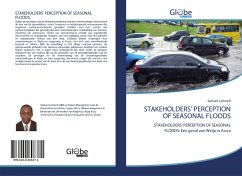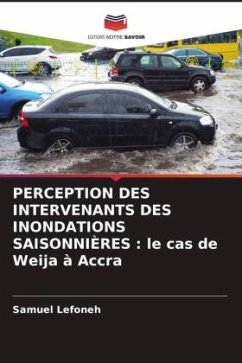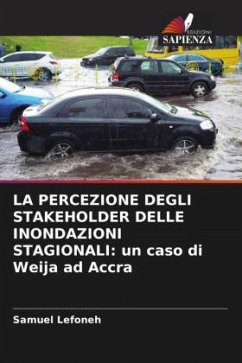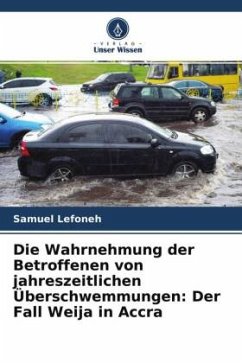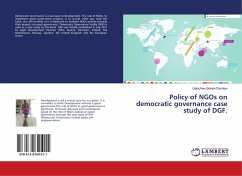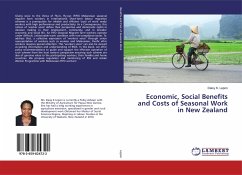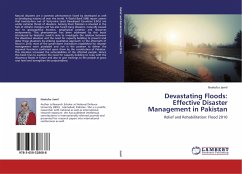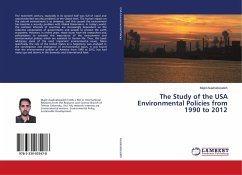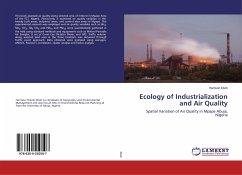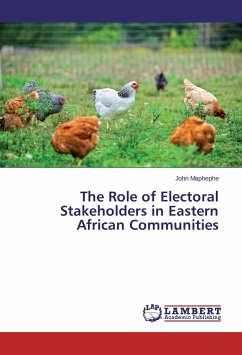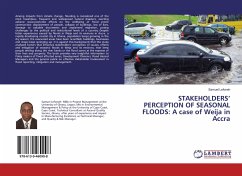
STAKEHOLDERS' PERCEPTION OF SEASONAL FLOODS: A case of Weija in Accra
Versandkostenfrei!
Versandfertig in 6-10 Tagen
27,99 €
inkl. MwSt.

PAYBACK Punkte
14 °P sammeln!
Among Impacts from climate change, flooding is considered one of the most hazardous, frequent and widespread natural disasters, exerting adverse socio-economic effects on the wellbeing of flood prone communities: displacement of people, collapse of buildings, loss of lives, damage to valuable documents and unplanned migration, posing challenges to the political and institutional levels of a country. Despite bitter experiences caused by floods in Weija and its environs in Accra, a rapidly developing coastal city in Ghana, population keeps growing in the dry season; the evacuated areas have been...
Among Impacts from climate change, flooding is considered one of the most hazardous, frequent and widespread natural disasters, exerting adverse socio-economic effects on the wellbeing of flood prone communities: displacement of people, collapse of buildings, loss of lives, damage to valuable documents and unplanned migration, posing challenges to the political and institutional levels of a country. Despite bitter experiences caused by floods in Weija and its environs in Accra, a rapidly developing coastal city in Ghana, population keeps growing in the dry season; the evacuated areas have been re-settled, buildings, businesses and shops keep springing up. It is against this background that this study analyzed factors that influence stakeholders' perception of causes, effects and mitigation of seasonal floods in Weija and its environs, that keep people settling along the river banks or the flood zones at the expense of their lives and property. The book provides very insightful information to Policy makers of flood affected areas, Development Planners, Flood Hazard Managers and the general public on effective stakeholder involvement in flood reporting, mitigation and management.



